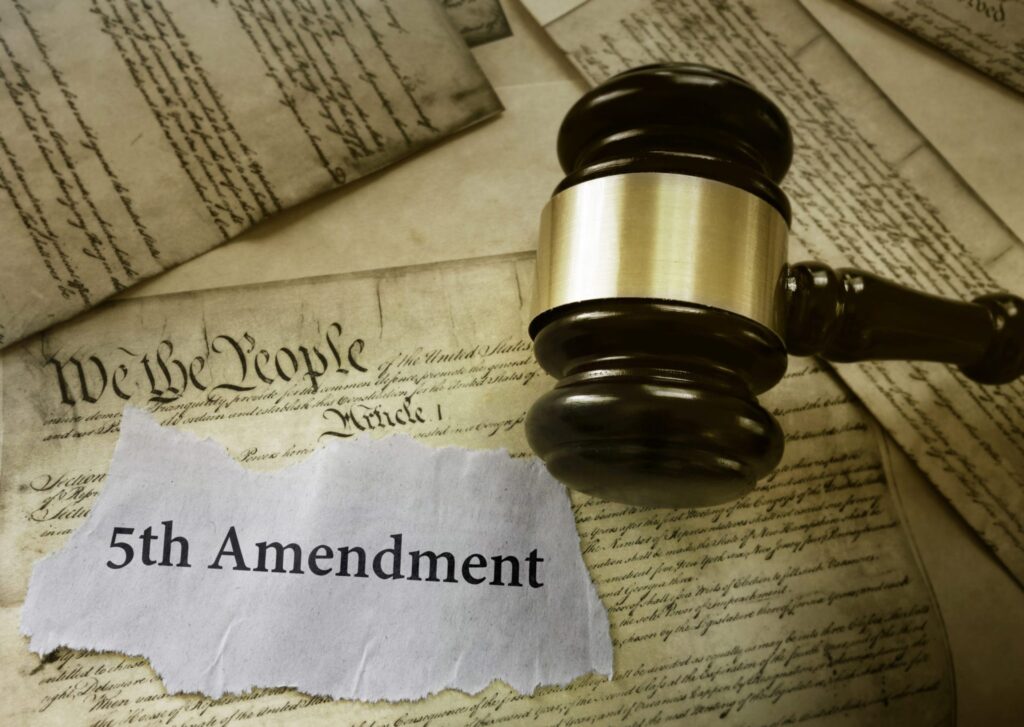If you’re being investigated for a crime in the state of Maine, the Constitution of the United States gives you some additional rights. One of these is in the Fifth Amendment, and protects you from being forced to incriminate yourself.
Pleading the Fifth
This is the right against self-incrimination, and is what people are referring to when they are on the stand in a trial or other official proceeding and they “plead the Fifth.” Invoking your right to not incriminate yourself is a crucial part of your privileges as a criminal defendant. However, your right against self-incrimination is a tricky one, with lots of nuances to it. Understanding where it comes from and why it exists lets you see what it does and how it can help.
Self-Incrimination and the Inquisition
The Fifth Amendment’s rights against self-incrimination have a long history, going all the way back to England’s use of a version of the inquisition in the 1600s.
Back then, the Star Chamber was England’s version of the inquisition. It investigated heretics and alleged criminals, but used inquisitorial, rather than accusatorial, tactics. Instead of gathering evidence of a crime from objects and testimony by other people, the Star Chamber investigated wrongdoing by bringing the defendant in, personally. Once the defendant was before the Chamber, he or she would be required to take an oath – the oath ex officio – swearing they would tell not only the truth, but the whole truth. The Star Chamber pushed defendants to swear this oath even before telling them what they were about to be accused of, and could hold them in jail for contempt of court if they didn’t swear it. This led to “fishing expeditions,” where the Chamber had little reason to suspect someone of a crime, but could bring them in, anyway.
Inquisitorial organizations like England’s Star Chamber and the Spanish Inquisition disappeared in the 18th and 19th centuries, but the fear they instilled hung around long after they disbanded.
Purpose of the Right Against Self-Incrimination
The lessons of inquisitorial systems like the Star Chamber are at the heart of our Fifth Amendment’s self-incrimination clause. As Supreme Court Justice Goldberg said in a 1964 case, allowing people to invoke the Fifth, we prevent incriminating statements from being pulled by prosecutors from someone through torture, and avoid the dilemma of someone having to choose whether to either lie under oath, say something that incriminates them of a crime, or say nothing and put themselves in contempt of court.
Underlying all of these lessons is the American ideal that the government should keep its hands out of our private lives until it has a solid reason to do so.
Criminal Defense Attorney William T. Bly
Your right against compelled self-incrimination is an important one. That’s why our next few blog posts will delve into some of the nuances behind it, like the scope of the privilege and when you can use it during a police investigation.
If you’ve been charged with a crime in the state of Maine, having criminal defense attorney William T. Bly at your side can help protect your rights and interests. Contact his law office online or at (207) 571-8146.


